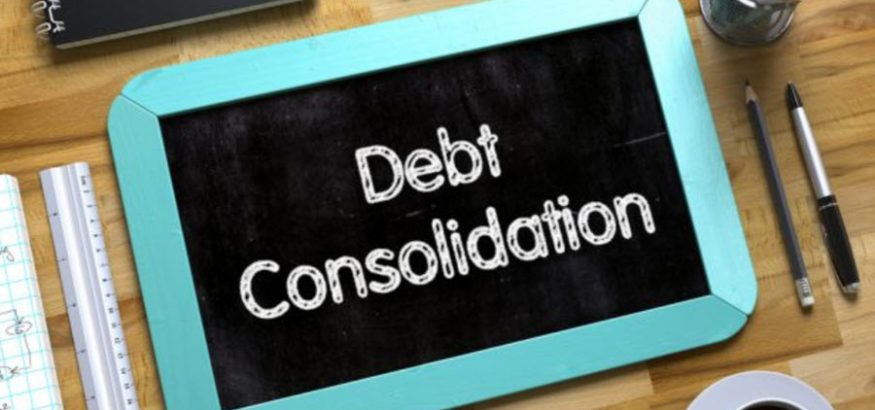Consolidating & Refinancing Debt – Be Clear On The Process
Is it a Good Idea to Consolidate Your Debt?
If you have been struggling to pay off the amount of debt you owe, it may seem like a good plan to pay to have all the debt rolled into a single consolidated loan.
Let's look at some things to examine before you choose to refinance or consolidate your debt:
- Debt Consolidation
- Considerations Before Refinancing
- Hazards of Debt Consolidation
- Help Consolidating Debt
- Ask These Important Questions
Understanding Debt Consolidation
Debt consolidation is the process of combining all of your existing debt into a single loan. This could help you have a smaller repayment amount monthly, but it could also make the overall situation more difficult, especially if the fees or interest rate for the new loan are higher than those of your original one.
Considerations Before Refinancing
Taking out a loan for debt consolidation can be useful if you will be spending less money on fees and interest in the long run. However, it could only be a short term solution if you're unable to make the payment amount for the new loan.
There are some things you should do before you consider refinancing or working with a company to assist you with your debt.
Speak to the Creditor: Contact the lender to find out if they're willing to work with you individually to adjust your repayment amount or extend the length of your loan so that you have lower payments.
Think About Switching Loans: A different loan on your home could save you quite a lot of money in fees and interest, but you'd also have to research it carefully to make sure that it really is a good deal.
Think About a Balance Transfer: In some cases, especially if you're carrying a large amount of credit card debt at high interest, a balance transfer option may be a good way to lower your debt so that you can afford payments. This can cause more issues if it isn't done properly, however, so it's important to crunch the numbers carefully.
Think About Selling Your House: If you're struggling to make your mortgage payments each month, it may be better to consider selling your home on your own than to risk the lender selling it and you losing money in the process.
Hazards of Debt Consolidation
Consolidating your debts can cause additional issues if you don't do so carefully. Here are some potential problems:
Falling into more debt: It's possible that you could gain access to more credit and then be tempted to spend more, creating a worse problem than you started with.
Losing your property: Turning unsecured debt into secured debt, using your home as collateral, can be risky as you could lose the house if you're unable to pay the new debt payment amounts.
Don't Trust a Broker Who Does the Following:
- Tries to get you to sign blank documents
- Refuses to talk about payment amounts
- Rushes you through the process
- Won't give you all of the information, including interest rates, in writing
- Tries to set up a business loan when you only need a personal loan
Case Study: Allen Didn't Read the Fine Print Carefully
Several years after he purchased a new apartment, Allen lost his job and started to get behind on his mortgage payments. He became worried that his lender would attempt to sell his property to cover the loan, so he contracted with a broker to help him refinance.
The broker worked out a loan that had high costs to refinance, as well as additional high fees attached. Allen soon found out that he was also paying a higher interest rate on his new loan, and that the payments wound up being $400 more a month than on his old one. David had to sell the apartment within a year, all because he didn't read the fine print of the agreement. Selling earlier would have saved him money and stress.
Help Consolidating Debt
Financial Counseling: A professional financial counselor may be able to help you figure out your money situation and work to negotiate your debt with creditors.
Seek Legal Assistance: If you've attempted to negotiate with your creditors and feel that they are doing something that is illegal or unfair, you may also want to contact Legal Aid for advice. They may be able to help negotiate on your behalf before any kind of legal proceedings are initiated and it is too late.
Ask the Important Questions
Before you sign any type of contract for a debt consolidation loan, it's important to consider the following:
Consider the Actual Cost: Take into account the fees, interest rate, and any extra charges before you sign loan documents, to be sure it is actually a financial improvement. In some cases, lenders will actually charge penalties for paying off loans early, so it's important to read the fine print carefully.
Check the Terms: Pay attention to the term of the loan. Even if the loan has a low-interest rate, paying off short term debts like credit cards over extended time periods means that you'll pay a great deal of money in fees and interest.
Be sure you evaluate all of your options before you pay for a professional to refinance or consolidate your loans. Learn more about debt relief services here.

